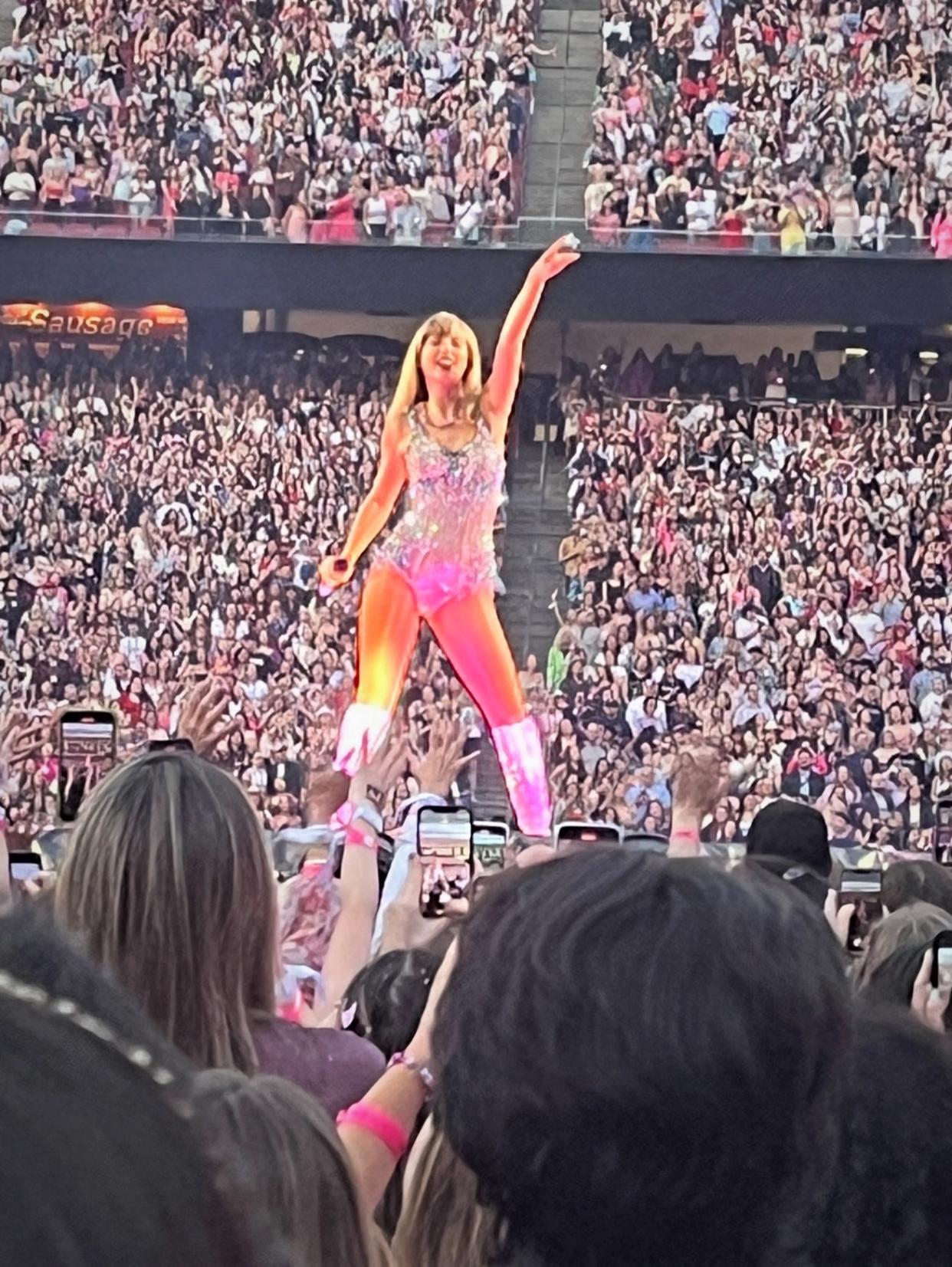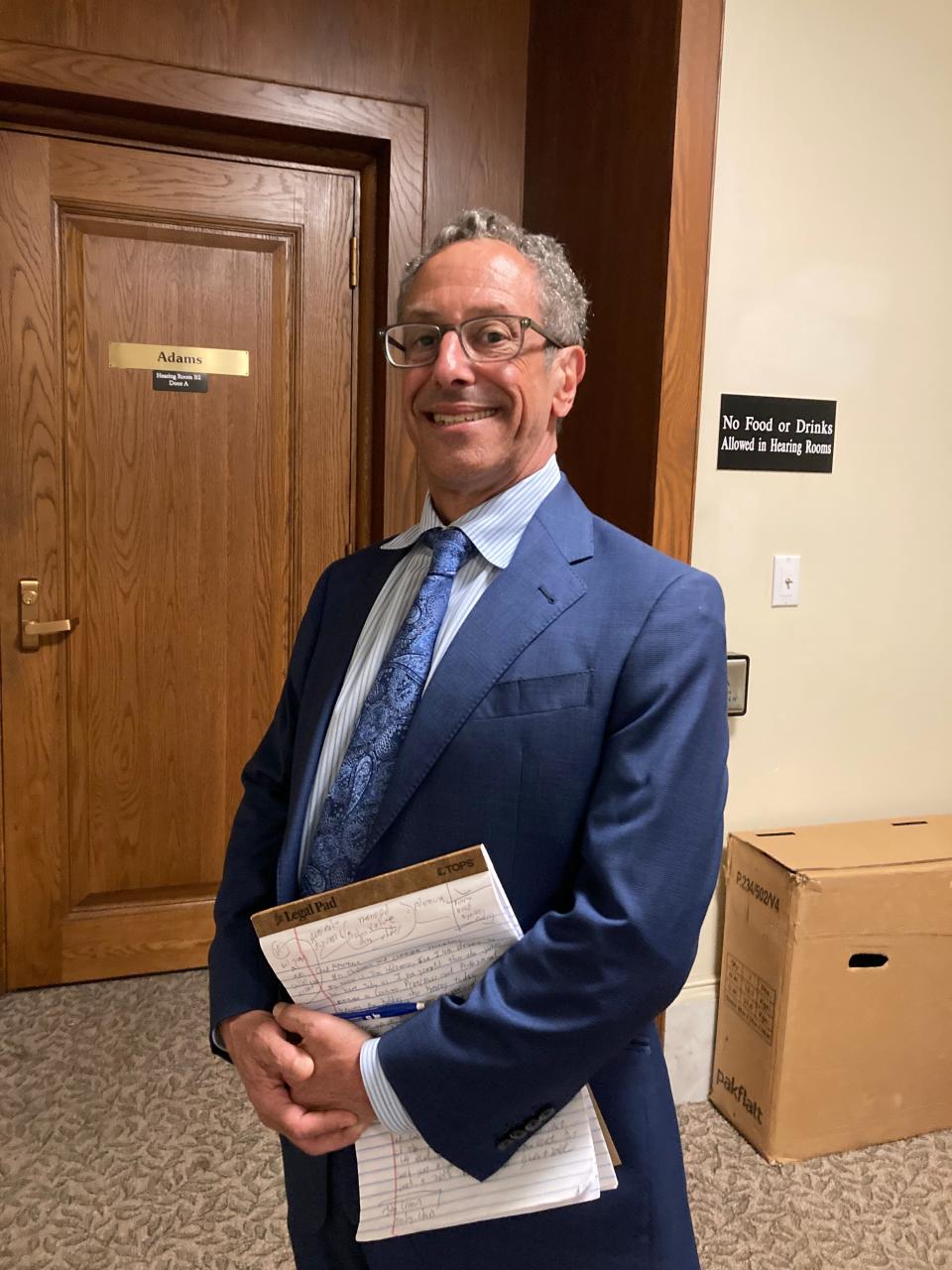Concert ticket prices are soaring. Mass. lawmakers are trying to bring them back to Earth

Based on the idea that the price advertised should be the price paid, Massachusetts lawmakers have filed companion bills in the House and Senate that would eliminate surprise fees and curtail “dynamic pricing” when it comes to purchasing tickets to live entertainment events.
“When a consumer is purchasing tickets, the price should be available upfront,” said Rep. Daniel Carey, D-Easthampton, sponsor of one of the bills that would promote transparency in ticket prices. “There should be no increases in prices, dynamic pricing, during the transaction.”
The lawmaker was referring to reported increases of ticket prices for selected concerts that occurred midtransaction for some consumers. The increases in face value of tickets was the result of high demand: Prices increase if there is a high demand for tickets.
The practice, apparent in the last two years of ticket sales, affected Massachusetts consumers seeking to purchase Taylor Swift tickets during her recent tour. And similarly affected would-be concertgoers seeking to purchase tickets to see Bruce Springsteen perform.
Lawmakers advocated for transparency in ticket prices
In addition to dynamic pricing, suppliers tack on service and convenience fees, resulting in surprise totals at the end of a transaction.
“Other states protect against this,” Carey said, urging his colleagues to report the bill out favorably.
Other pending legislation that ties into the transparency in pricing, is an act to modernize distribution and pricing of tickets. Currently, Massachusetts residents are barred from transferring ownership of, or the resale or donation of purchased tickets. That can currently only be done through the venue where they were purchased.
“It’s a monopoly,” said Chris Vandehoef, of Fan Freedom Project, a consumer advocate who testified at the Monday hearing. He laid the blame squarely on Live Nation/Ticketmaster, known as Live Nation Entertainment following a 2010 merger between the two. The entity is the nation’s largest owner/lessor of entertainment venues and the world’s leading concert promoter. It controls about 80% of venue ticket sales while also functioning as a handler for artists and promoter.
“There’s not enough transparency in the space,” Vandehoef said. The Fan Freedom website cites a 2018 Government Accountability Office report that indicated Live Nation Entertainment owns, operates and maintains exclusive booking rights for or holding an equity interest in 289 concert venues globally, and promoting more than 40,000 events for over 5,000 artists in 2019.
Don Law of Live Nation Entertainment said the corporate giant is in favor of the Massachusetts proposal to update ticket sales and transfers, as well as transparency in pricing, with the caveat that the law is enforced across all ticket purchasing platforms including the resale market.

Runaway pricing blamed on resale market
He maintained that the ticket sales, prices, release dates and concert dates are not decided by Live Nation Entertainment, but that they are set by the artists, venues and promotion teams. He blamed the runaway prices and hidden fees on the secondary and resale market.
Law blamed the Federal Trade Commission and ticket brokers using “bots” — automated ticket-purchasing programs — for the Taylor Swift ticket fiasco. The artists established a sales mechanism, direct to “verified” fans that slowed the system, allowing brokers to jump in with bots.
“It was the biggest sale in history,” Law said, adding that it lies with the Federal Trade Commission to enforce the rules excluding brokers from using bots to scoop up tickets for the resale market.
In Washington, two Democratic congressmen from New Jersey, Bill Pascrell and Frank Pallone, have introduced legislation titled the “BOSS and Swift Act” and would specifically address ticket sale and resale issues including hidden fees, on-sale transparency, buyer protections, speculative tickets and deceptive white label websites, those that are not affiliated with either the artist, venue or retailer and could issue fake tickets.
Pascrell was made aware of dynamic pricing trends when consumers in his district were priced out of a recent Springsteen tour.
“I hear all the time from Americans irate at the price of just trying to enjoy a little entertainment,” Pascrell said in a written statement. “I talk to people who can’t buy tickets the instant they go on sale and others charged hundreds of dollars in mystery fees.”
Americans, he believes, are tired of being shaken down to attend live music and entertainment events.
Pascrell advocating for transparency for 15 years
“Americans in all 50 states have been getting the shaft from high ticket prices and absurd fees for many years,” Pascrell said. “Our office has been working in Congress to create federal ticketing rules for almost 15 years. My Boss and Swift Act legislation would impose bare transparency and fairness for the first time on what is an opaque, unchecked industry. The truth is the ticketing industry has been broken for some time.”
The congressman decried the power wielded over the entertainment industry by LNE.
“When one company holds absolute power over nearly every facet of events from recording, to record sales, to licensing, talent management, venue ownership, ticketing and concessions all the way down to the guy who sells the hot dogs and the pretzels, the situation is untenable,” Pascrell said.
Jim Holzman of Ace Ticket, a brick-and-mortar aftermarket broker based in Boston, said that competition in the marketplace is “good for consumers.”
In testifying in favor of the modernization act, Holzman said that once tickets are purchased, they should belong directly to the consumer and that consumer should be able to dispose of it at will: either resell it, transfer ownership or even gift it to someone.
“Of the tickets resold in Massachusetts, 30% were sold under face value,” Holzman said, current state law allowing for only a $2 markup. Reselling through the original ticket broker could result in resale higher prices due to minimum prices established by the platform.
“The state needs to do something,” Holzman said.
Pascrell agreed. The more states that address the issue, the better it is for consumers.
“I thank Massachusetts legislators for their leadership here and urge the same advocacy in the other 49 states,” Pascrell said. “Congress must act as well and we continue to work to build support. But legislation is not enough and I continue to urge our Justice Department and FTC to break up the Live Nation-Ticketmaster monopoly octopus. Americans are fed up.”
This article originally appeared on Telegram & Gazette: Bills allow consumers to resell tickets, bar dynamic pricing

